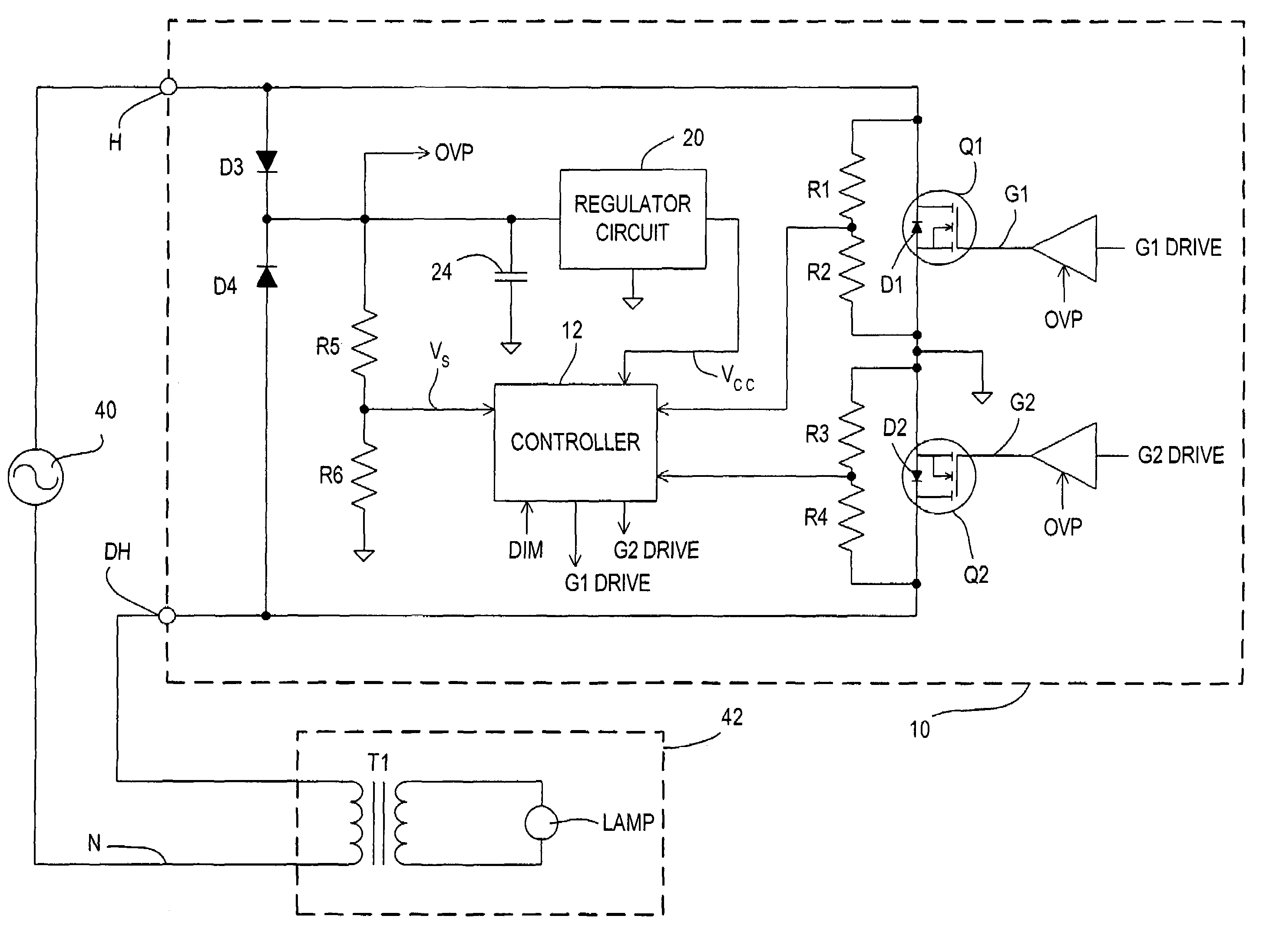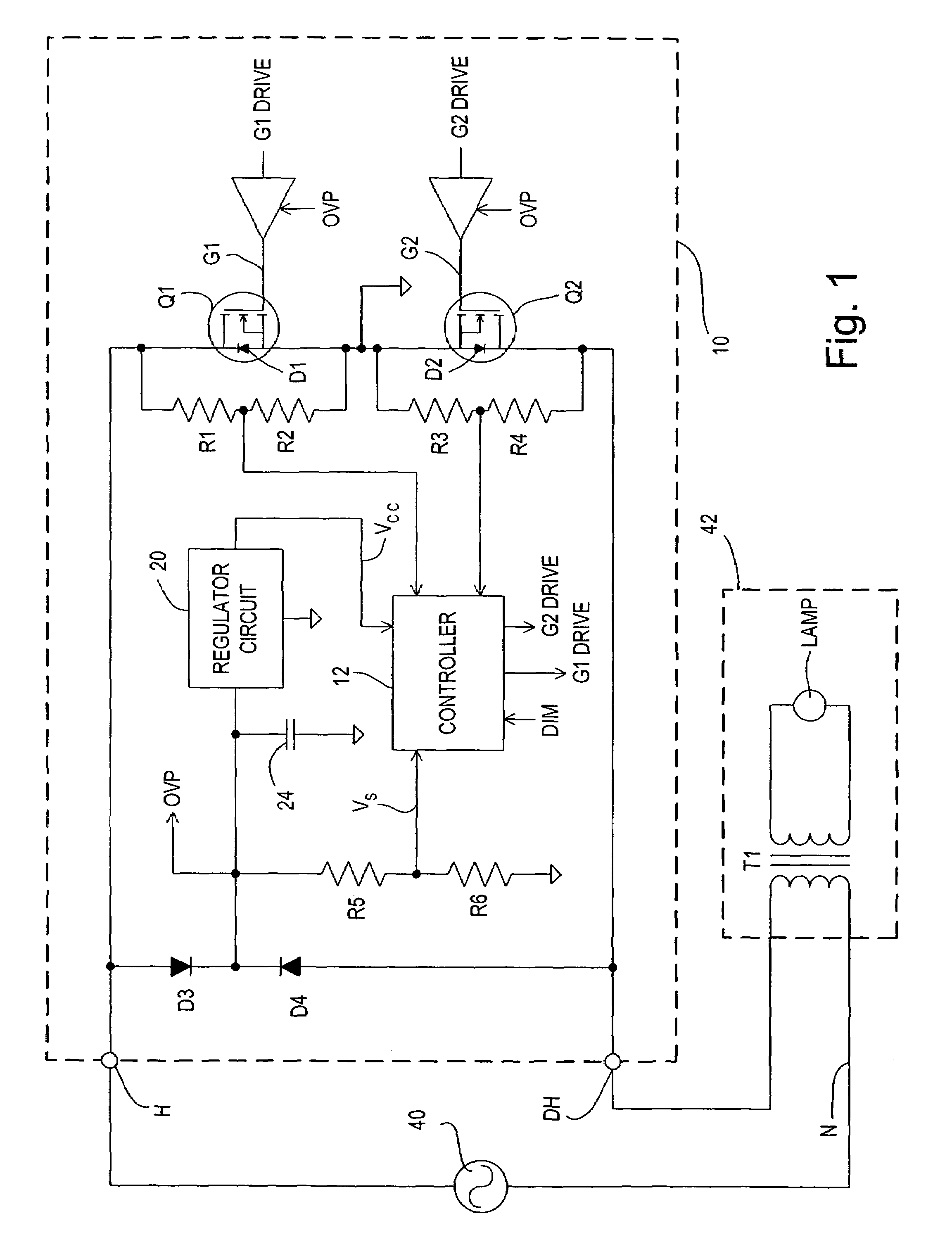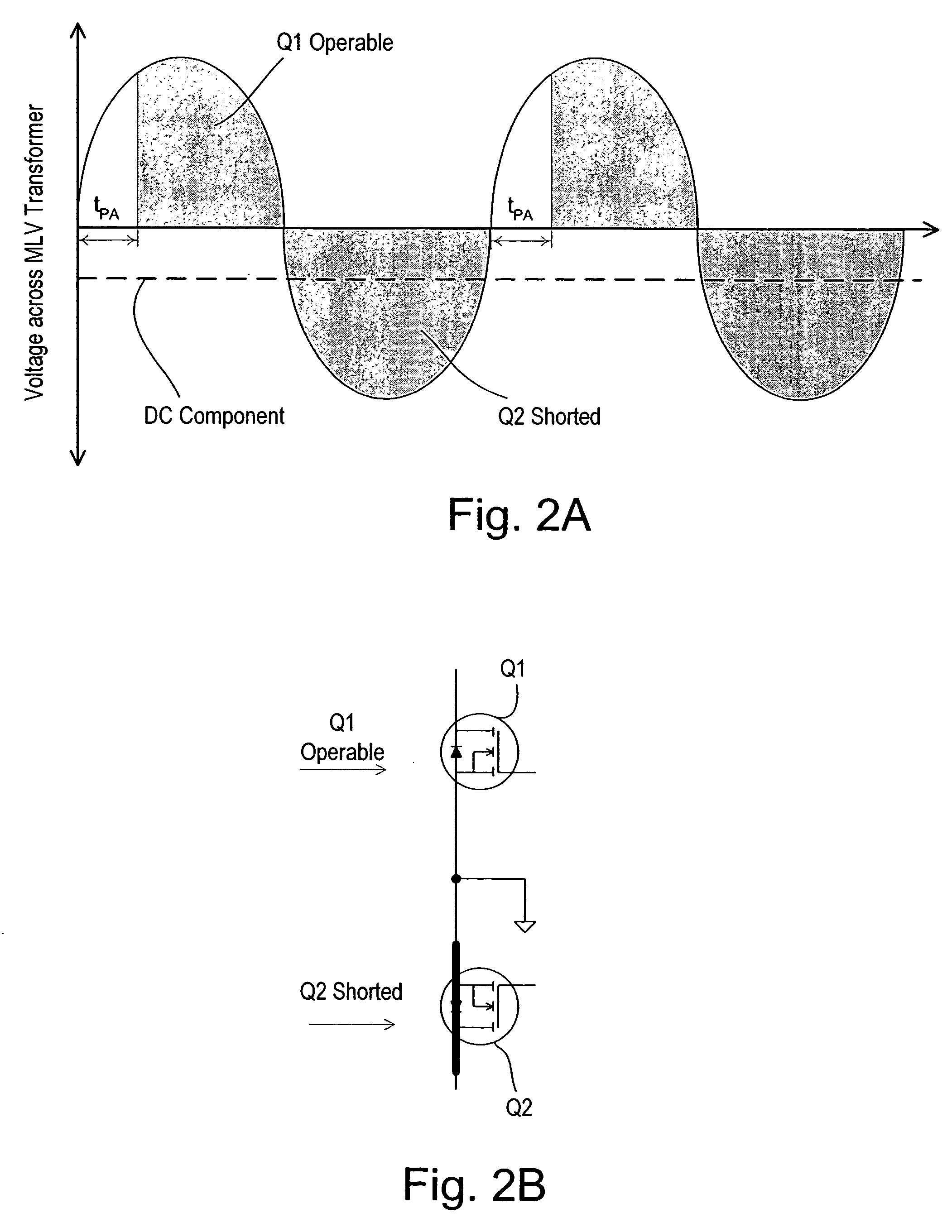Two-wire dimmer with power supply and load protection circuit in the event of switch failure
a load protection circuit and power supply technology, applied in the field of two-wire dimmers with power supply and load protection circuits in the event of switch failure, can solve the problems of increasing the temperature of the transformer, fire hazards, and dc components of the voltage across the transformer, and achieve the effect of minimizing the overheating of the inductive load
- Summary
- Abstract
- Description
- Claims
- Application Information
AI Technical Summary
Benefits of technology
Problems solved by technology
Method used
Image
Examples
Embodiment Construction
[0031]With reference now to the drawings, FIG. 1 shows a simplified schematic diagram of a dimmer 10 incorporating the principles of the present invention. The dimmer 10 includes first and second semiconductor switches Q1 and Q2 functioning as a bidirectional switch. The switches may be FETs connected in anti-series relationship. The intrinsic body diodes D1 and D2 are shown. Additionally, external diodes can be provided across each of the transistors Q1 and Q2 connected in the same way as the body diode, as shown, to provide a better forward voltage characteristic than the body diode. The two transistors Q1 and Q2 have their gates G1 and G2 controlled by a controller 12, such as a microprocessor, in response to a dimming signal DIM and other inputs (such as on / off) from the user interface (not shown) of the dimmer 10, to provide appropriate dimming and on / off control. Although a microprocessor controller 12 is shown, this circuit need not have a microprocessor and can be an analog ...
PUM
 Login to View More
Login to View More Abstract
Description
Claims
Application Information
 Login to View More
Login to View More - R&D
- Intellectual Property
- Life Sciences
- Materials
- Tech Scout
- Unparalleled Data Quality
- Higher Quality Content
- 60% Fewer Hallucinations
Browse by: Latest US Patents, China's latest patents, Technical Efficacy Thesaurus, Application Domain, Technology Topic, Popular Technical Reports.
© 2025 PatSnap. All rights reserved.Legal|Privacy policy|Modern Slavery Act Transparency Statement|Sitemap|About US| Contact US: help@patsnap.com



